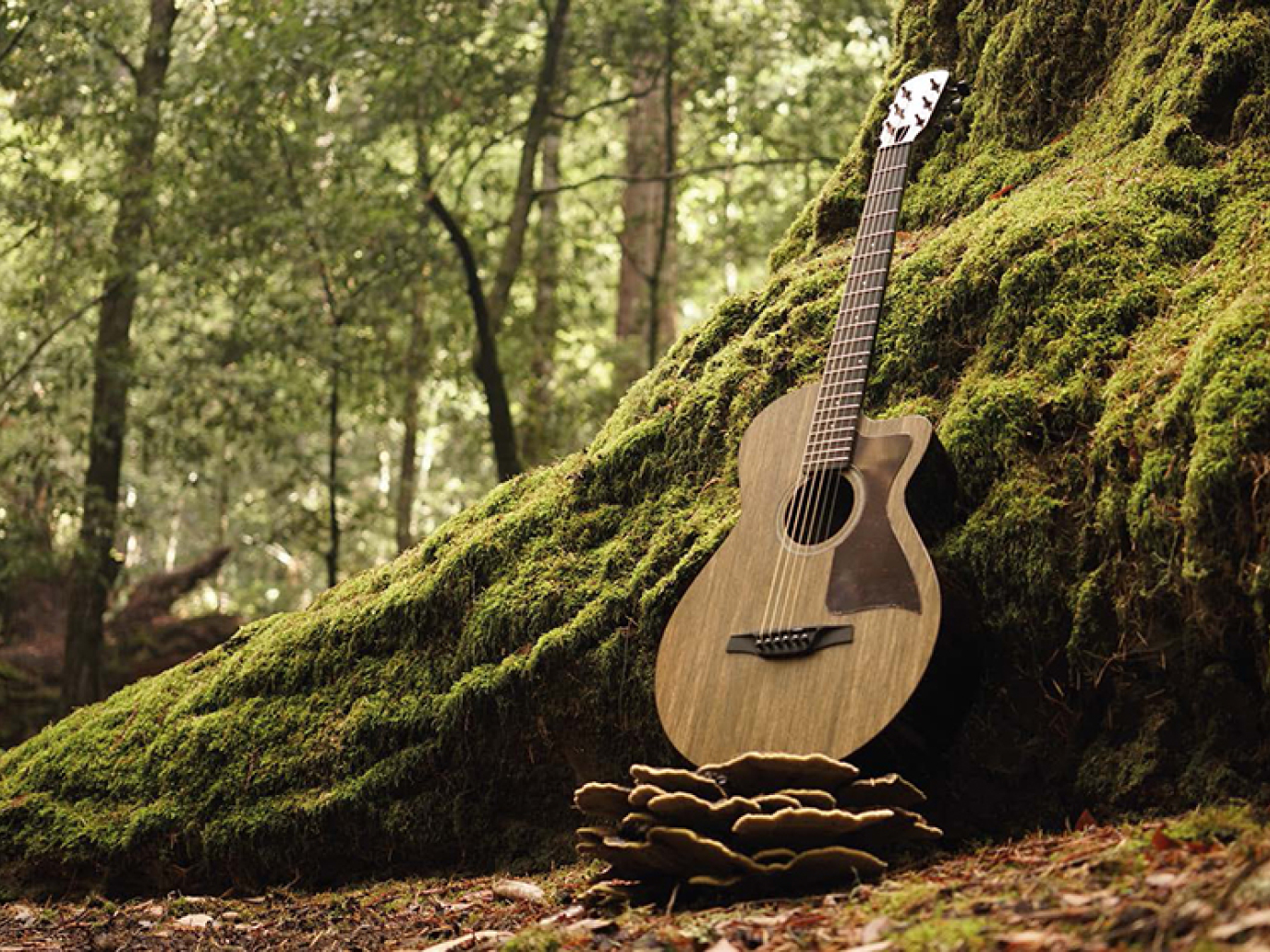Name: Lingrove
Sector: New materials
Pros: CO2 negative biomaterial obtained from flax fibre and vegetable-based resins 10 times more resistant than wood
Characteristics: Bio-thermoplastic compound obtained from flax processing waste as an alternative to wood and fiberglass
Lingrove, a start-up based in San Francisco, is committed to creating sustainable alternatives to wood and plastic material use.
At the end of 2017, Lingrove launched Ekoa, a biomaterial obtained from flax waste that looks and feels like wood, yet outperforms it in weight resistance, printability and durability. The name Ekoa is inspired by Koa, an endangered Hawaiian native tree, with the addition of an “E” for ecological.
Its founder, Joe Luttwak, an expert in the field of design and materials, worked for Ferrari and founded Blackbird Guitar, a company devoted to the production of musical instruments. By observing the wood guitars are made of, Luttwak embarked on a 5-year journey that led him to linseed, the oldest vegetable fibre used for clothing, an alternative to wood and oil-based compounds. Without overlooking performance, the compounds obtained have a 15% lower density compared to carbon fibres and Ekoa’s stiffness to weight ratio is higher than that of aerospace fiberglass created for extreme applications.
Flax production requires limited irrigation with a growing cycle of about four months. To obtain Ekoa, Lingrove uses discarded stalks from Canadian flax production, combining flax natural fibre with a cashew-based bio-resin. Once the product is cut and stratified in a mould it is pressure shaped into 3-D shapes for furnishing, cars, sports equipment and musical instruments.
Lingrove is trying to integrate several types of agricultural waste and post-industrial, post-consumer recycled bioplastics and resins into its formula.



